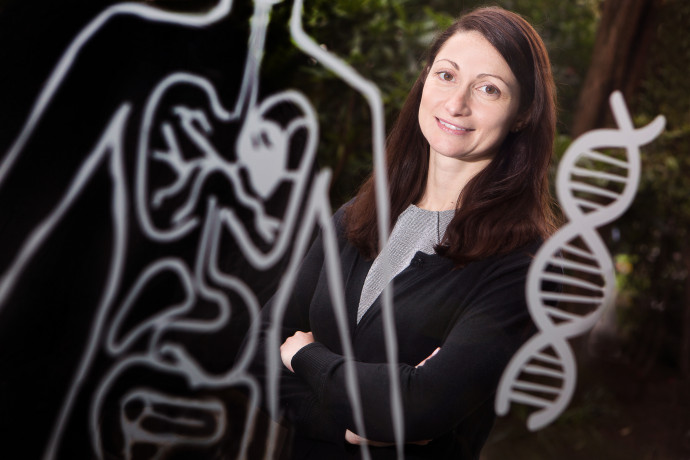Sarah Diermeier

2018: Dr Sarah Diermeier, University of Otago, Department of Biochemistry, has been awarded a Rutherford Discovery Fellowship for research entitled: ‘Long non-coding RNAs as new drivers of tumour progression.’
Biography

Dr Sarah Diermeier is a Lecturer in the Department of Biochemistry at the University of Otago, with an interest in identifying novel therapeutic targets and cancer. Dr Diermeier received her PhD in 2013 from the University of Regensburg, Germany. From 2013-2018 she conducted research at the Cold Spring Harbor Laboratory, NY, USA. In 2016, she was awarded a Susan G. Komen postdoctoral fellowship, and in 2017, a K99/R00 Pathway to Independence Award by the United States National Cancer Institute and the National Institutes of Health. Dr Diermeier rescinded this prestigious award to move to New Zealand, where she recently took up a lectureship at the University of Otago. In her New Zealand laboratory, she currently supervises a postdoctoral fellow, an assistant research fellow, two Honours students and a Masters student. The overarching questions of her research group are to identify novel therapeutic targets in cancer and to elucidate the genetic and epigenetic mechanisms of cancer gene regulation.
Research Summary
The main cause of death in cancer patients is due to the spread of tumours to distant organs, or metastasis. To develop new treatments to intervene in tumour progression and metastasis it is critical to identify and investigate potential new molecular targets. To date, most anti-cancer drug development has focused on targeting proteins. However, only 2% of the human genome encodes proteins but as much as 80% is transcribed into RNA. These “non-coding” RNA transcripts represent exciting potential therapeutic targets in cancer progression.
Dr Diermeier’s research programme aims to assess the role of long non-coding RNAs (lncRNAs), the largest and most diverse class of non-coding transcripts, in cancer metastasis. She will focus specifically on breast and colorectal cancer, as these types of cancer are major health concerns in New Zealand. Importantly, Māori have higher mortality rates for these cancers compared to New Zealanders of other ethnicities. She will identify new lncRNA drivers of tumour progression and metastasis on a single-cell level. Promising lncRNA candidates will undergo validation using CRISPR-Cas 9 genome editing technology and detailed molecular characterization. Dr Diermeier will collaborate with local surgeons and clinicians. This will allow the results of this study to be directly used to improve future patient prognosis and initiate clinical trials for the treatment of tumour progression.
